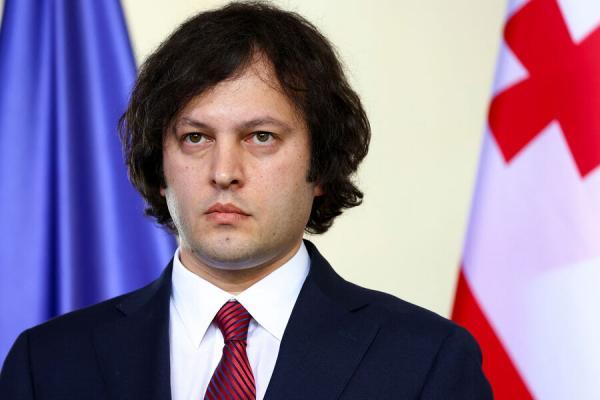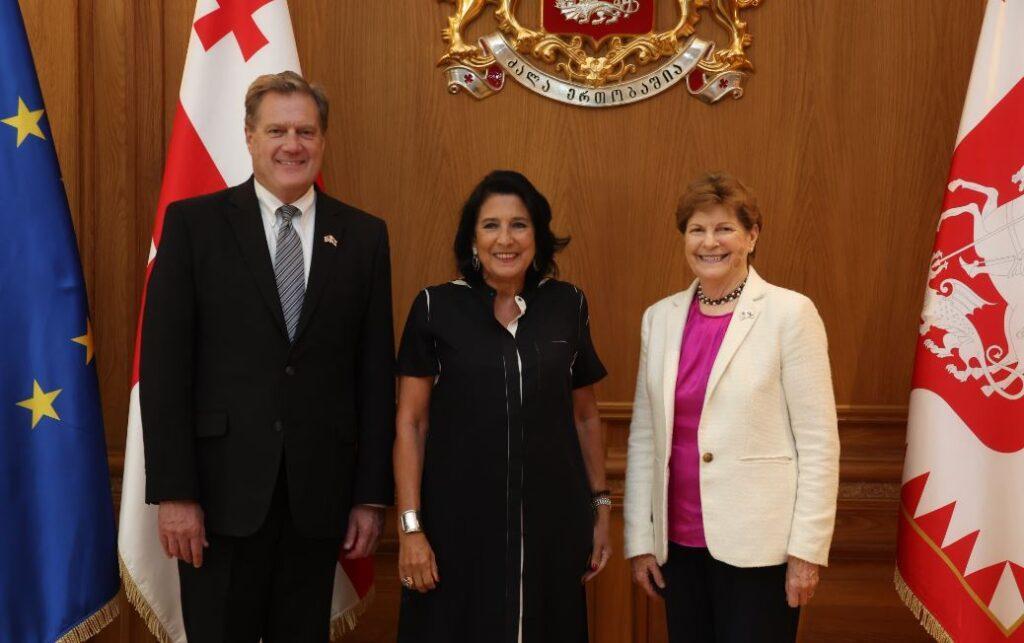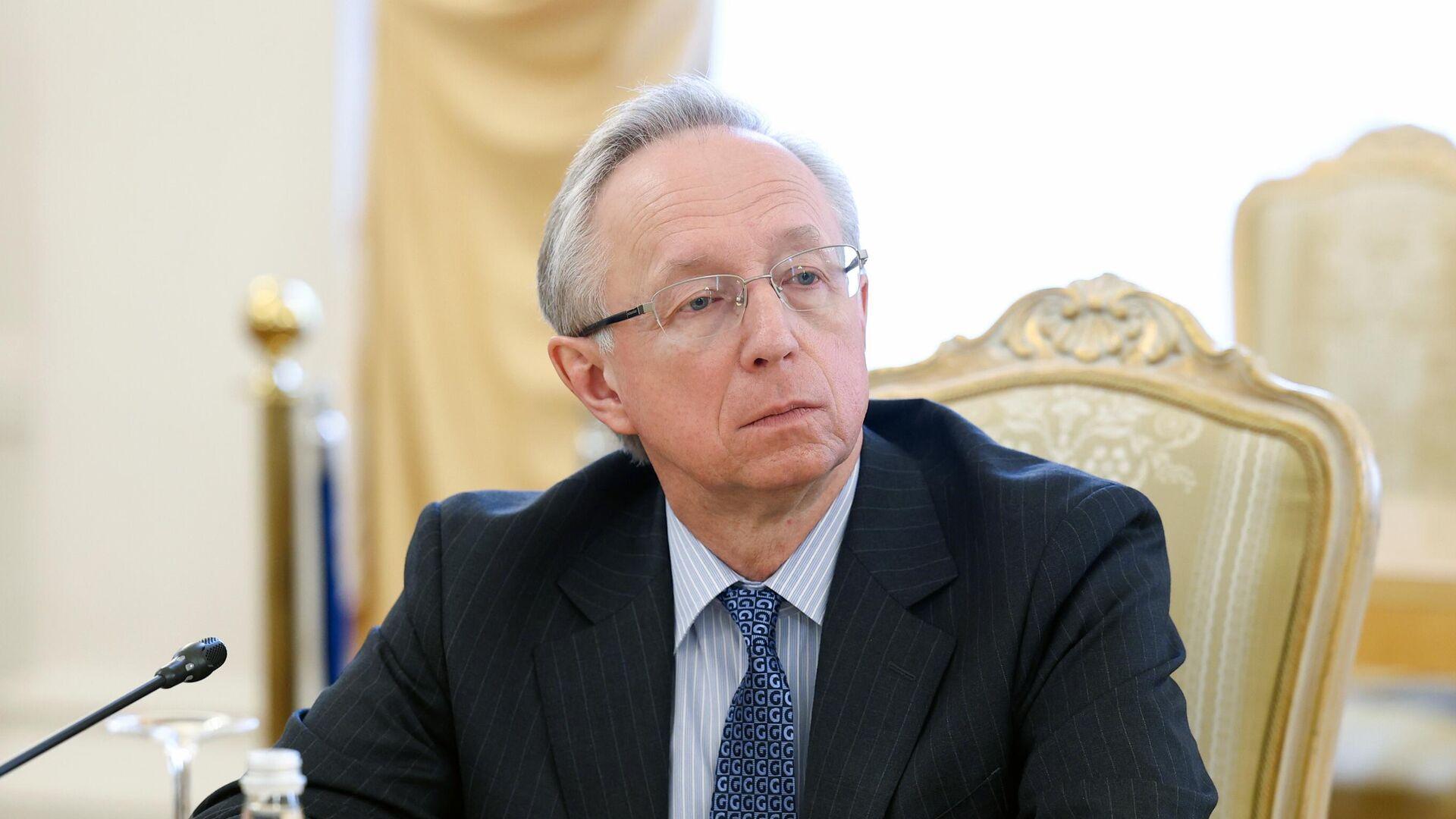Georgia’s strategic importance surges Russia, West competing for influence in region
The crisis in the Georgia-US relations continues. The deterioration stems from Washington's efforts to block a proposed law on foreign agents in Georgia, which would require media outlets and non-governmental organisations (NGOs) receiving at least 20 per cent of their funding from abroad to register. Additionally, the US disapproved of the ruling party, Georgian Dream, deciding to normalise relations with Russia. In response, the Georgian government has openly accused the US of attempting to draw Georgia into a war with Russia and to orchestrate a change of government in Tbilisi.
Despite this, Georgian Prime Minister Irakli Kobakhidze has repeatedly expressed Tbilisi's readiness to reset diplomatic relations with Washington. Recently, Kobakhidze reiterated to journalists that the Georgian government has taken steps to normalise and reset relations with the US and is expecting a reciprocal gesture from the US counterparts.

"We need to reset relations. For this reset, fairness, a correct, and rational approach are necessary. We have already taken steps on our part. We are now in wait mode, expecting reciprocal actions from our American colleagues," Kobakhidze said.
This statement was made to the press following a meeting between the Georgian prime minister and American lawmakers, Senator Jeanne Shaheen and Congressman Mike Turner, who visited Tbilisi on a working trip.
However, Georgia's efforts to normalise relations with the US have not satisfied the US side. It seems the Biden administration and Congress are demanding full compliance from Tbilisi with Washington's wishes. This conclusion is supported by Senator Jeanne Shaheen's comments at a press conference in Tbilisi, where she openly stated that "the Georgian authorities are not interested in improving relations with the US."
"What's disappointing is that the Georgian prime minister has not made any proposals about what he and his administration plan to do to improve relations with the US. We discussed several concerning issues that have been accumulating, which we have addressed before. For instance, claims that the US government planned a coup in Georgia are absolute lies," said the Senator, adding that the US has always supported Georgian democracy and its economy.
In response, the Georgian prime minister noted in an interview with journalists that during the negotiations, none of the US legislators mentioned the "Foreign Influence Transparency Scheme Act."
Let's delve into the reasons behind the sharp deterioration of the once-trusting partnership between Tbilisi and Washington.
US uses diplomatic leverage
As previously noted, a significant factor in the deterioration of relations between Tbilisi and Washington was the adoption of the law on foreign agents in Georgia this year. US Secretary of State Antony Blinken confirmed this on July 31, stating that, due to the enactment of the law on foreign agents in Georgia, Washington decided to suspend its aid programme to Tbilisi, amounting to over $95 million. Similarly, the European Union decided to freeze 30 million euros intended for the Georgian Defence Ministry for the same reason.

Moreover, US dissatisfaction is clearly linked to certain shifts in Georgia's efforts to normalise relations with Russia. In June 2024, Georgian Mtavari Arkhi TV channel reported that the government was working to restore relations with Russia, which were severed in 2008. This aligns with statements by Russian Deputy Foreign Minister Mikhail Galuzin, who noted that increasing trade, economic, humanitarian, and cultural interactions would gradually lay the groundwork for normalisation. Galuzin expressed optimism in February that Russia would continue supporting the normalisation of ties with Georgia, even if there are no formal diplomatic relations.
Washington could not overlook Moscow's rhetoric. The US not only criticised the Georgian authorities but also began imposing sanctions against Georgia. Specifically, the US introduced visa restrictions on members of the Georgian Dream party, MPs, and security officials responsible for enacting the law on foreign agents and dispersing protesters.
"We hope that Georgia's leaders will reconsider their actions and take steps to advance Georgia’s long-standing democratic and Euro-Atlantic aspirations," spokesman for the US Department of State Matthew Miller said. "If they do not, the US is prepared to take additional measures."
Tbilisi labeled these actions by the US as "blackmail."
"The policy of blackmail and threats continues to prevent Georgia from making independent decisions based on its own interests," Executive Secretary of the ruling Georgian Dream party and leader of the parliamentary majority Mamuka Mdinaradze said.
Georgian Prime Minister Irakli Kobakhidze also described as blackmail the remarks by US Assistant Secretary of State for European and Eurasian Affairs James O'Brien regarding the potential imposition of new sanctions on Georgia.
On July 30, during a US congressional hearing, James O'Brien mentioned that Washington is considering new sanctions against Georgia, adding that the US hopes Tbilisi will change its policy and that "there is a way back" for Georgia.
It seems Washington prefers not to see pro-Western Tbilisi become a close ally of Moscow. The US aims to keep Georgia within its sphere of influence to advance its interests in this strategically important region.
Will there be a reset in US-Georgia relations?
From the discussions between congressmen and Kobakhidze, it is evident that both sides seek to prevent further escalation of the crisis. However, they have differing views on how normalisation should proceed. The US envisions normalisation through the repeal of the law on foreign agents and the promotion of rights of lesbians, gays, bisexuals, and transgenders. Ideally, they also hope to see the release of Georgian ex-President Mikheil Saakashvili and Georgia’s alignment with anti-Russian sanctions.
On the other hand, the Kobakhidze government hopes for US recognition of Georgia's sovereignty and democracy. Given the current governments in both Georgia and the US, achieving a compromise seems challenging.

Moscow won’t miss its chance
The key stumbling block in normalising relations between Moscow and Tbilisi remains the issue of Georgia’s territorial integrity, despite advancements in trade and economic relations (in January 2023, trade between Georgia and Russia totaled $263.6 million). Until recently, Russia had been unwilling to make concessions on this crucial issue for Tbilisi.
However, last week, Moscow indicated its readiness to facilitate dialogue among Tbilisi, Sukhumi, and Tskhinvali to achieve lasting peace in the region. Spokesperson for the Russian Foreign Ministry Maria Zakharova stated that Russia "deems it necessary to conclude a non-use-of-force agreement," which would guarantee that the events of 2008 do not recur.
Georgia and its international partners consider Abkhazia and South Ossetia as territories occupied by Russia. Their "independence" is recognised only by Russia, Nicaragua, Venezuela, Syria, and Nauru. Moscow's unexpected mediation initiative between the parties to the long-standing conflict in the Caucasus appears to be an attempt to resolve relations with Tbilisi. This move is not coincidental, coming at a time of strained relations between the West and Georgia. On July 9, Brussels announced the suspension of Georgia's EU accession process, and the EU ambassador to Georgia accused the Georgian government of engaging in completely incompatible anti-Western and anti-European rhetoric alongside the adoption of the law on foreign agents.
Thus, the following conclusions can be drawn. Firstly, the notion that Georgia is becoming pro-Russian is premature, as the country still seeks a reset of relations with the US and remains committed to European integration. Secondly, it is clear that due to the war in Ukraine, Tbilisi's significance to Moscow has increased sharply, and the opening of the border with Georgia serves Russia's interests in facilitating transit to Türkiye and Armenia.
Moscow's attempt to normalise relations with Tbilisi during the escalation of Georgian-US tensions may prompt the West to reassess its approach to Georgia, potentially altering the current power dynamics in the region. Whether the West or Russia will succeed in attracting Georgia will ultimately depend on Georgia's decisions. Only time will tell.








